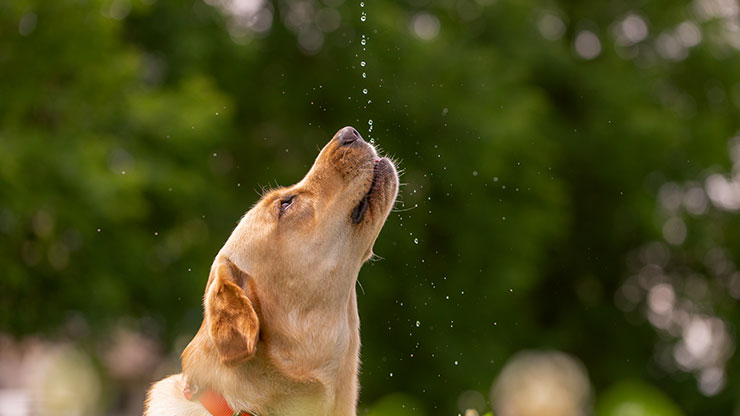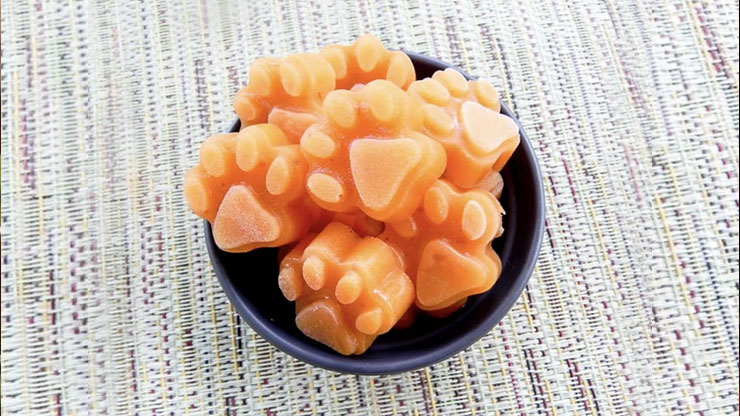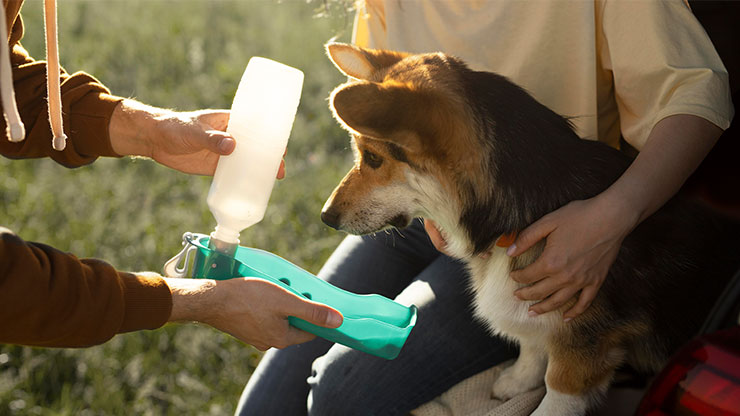
How to Keep Your Dog Hydrated During Summer
As the summer sun shines brightly and temperatures rise, it's not just humans who need to stay hydrated. Our canine companions also need to maintain their hydration levels to stay healthy and comfortable when it's hot outside. Dehydration in dogs can lead to serious health issues, making it a crucial aspect of pet care that should not be overlooked.
In this article, we'll explore what dehydration is, how it affects your dog, and the signs to watch out for. Plus, we'll share some practical tips to help keep your dog hydrated and highlight certain dogs that may need extra care.
Understanding Dehydration in Dogs
Dehydration occurs when your dog loses more fluids than they consume, disrupting the balance of essential bodily functions. During summer, dogs can quickly become dehydrated due to increased panting, excessive play, or simply not drinking enough water.
Without adequate water, your dog could face severe dehydration within 2 to 5 days, potentially leading to serious health complications and even death. Understanding the causes of dehydration can help you take preventative measures to ensure your dog's well-being.
Recognizing the Signs of Dehydration
Recognizing the signs of dehydration is crucial for your dog's health. Early detection can prevent serious complications and ensure that your pup gets the care they need. Here are some of the most common signs of dehydration in dogs:
- Lethargy or decreased energy
- Dry or sticky gums
- Excessive panting or difficulty breathing
- Sunken or dry eyes
- Loss of appetite
- Dark-colored urine or decreased urination
Certain medical conditions can also affect your dog's hydration. For instance, urinary tract infections, kidney diseases, diabetes, and bladder infections can all lead to changes in your dog's drinking habits. In some cases, these conditions may cause your dog to drink more water than usual, while in others, they may lead to decreased water intake.
It's crucial to monitor your dog's drinking habits and seek veterinary care if you notice any significant changes. Dehydration can quickly become a serious medical issue, so don't wait to act.

Preventing Dehydration: Essential Tips
Keeping your dog hydrated during the summer months requires a proactive approach. Here are some tips to help you maintain your pup's hydration levels:
Access to Fresh Water
Ensure your dog always has access to fresh, clean water by placing multiple water bowls around your home and yard. Pet water fountains can also be a great investment. They keep water circulating and fresh, which can help encourage your dog to drink more.
Flavored Water
To encourage your dog to drink more, consider adding dog-safe flavorings to their water. Low-sodium bone broth or chicken broth can make the water more enticing and provide additional nutrients. Always introduce new ingredients gradually to ensure your dog tolerates them well.

Frozen Apple Carrot Cubes - Courtesy Cindy Gordon (Vegetarian Mamma)
Hydrating Treats
Consider making homemade frozen treats to keep your dog cool and hydrated. You can use dog-safe ingredients like fruits, vegetables, and low-sodium broth. For example, try freezing a mixture of mashed banana and xylitol-free peanut butter or low-sodium chicken broth and diced carrots for a refreshing and hydrating treat.
Hydration on the Go
When taking your dog for a walk or outdoor activities, bring along plenty of water and a portable bowl. Consider investing in a doggy backpack with a built-in water reservoir for longer hikes. Try to plan your walks during cooler parts of the day, such as early morning or late evening. This will prevent overheating and minimize the risk of dehydration.
Excessive heat can be dangerous for dogs, so avoid taking your pup outside during the hottest parts of the day (typically from 11 am to 4 pm). If you must take your dog out in the midday heat, keep walks short and carry plenty of water. Avoid asphalt or concrete surfaces that retain more heat and can burn your dog's paws.

Shady Spots
If your dog spends a lot of time outside, provide plenty of shade for them to rest and escape the sun. A doghouse or umbrella can provide relief from the heat. You can also invest in a kiddie pool for your pup to play and cool off in. Just make sure to supervise your dog when they're in or around water.
Special Considerations for Certain Dogs
Certain dogs may require extra attention during hot weather. Puppies, for instance, are still developing their ability to regulate body temperature and can become dehydrated more easily. Older dogs, on the other hand, may have underlying health conditions that make them more susceptible to dehydration.
Specific breeds, such as brachycephalic breeds like Bulldogs and Pugs, have shorter snouts and can struggle with heat regulation, making them more prone to dehydration. Similarly, dogs with thick or dark-colored coats absorb more heat and may need extra hydration to stay cool.
Always monitor these dogs closely during hot weather and consult with your vet for personalized advice. It's crucial to understand that while all dogs need to stay hydrated, certain dogs may need a bit more care and attention.
Keeping Your Dog Hydrated: A Summer Essential
As we've discussed, maintaining your dog's hydration during summer is vital for their health and well-being. By understanding the causes and signs of dehydration, you can take proactive steps to prevent it.
Remember, your dog's hydration is not just a summer concern but a year-round commitment. By staying vigilant and proactive, you can ensure your furry friend stays healthy and happy – no matter the weather.
-----
Author Bio
Richard Rowlands is a copywriter and content creator who works with pet and veterinary businesses. When he's not researching, writing, or creating content plans, he enjoys spending time with his rescue dog, Otto, and exploring new places. Check out his blog for savvy pet owners at richardrowlands.com.










